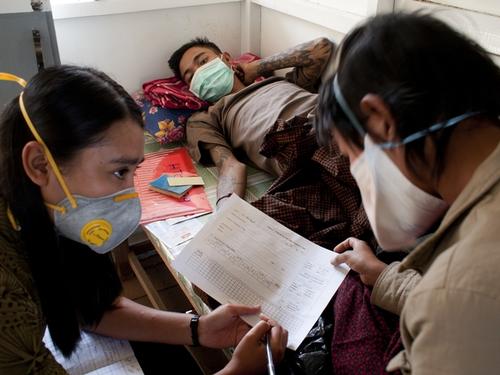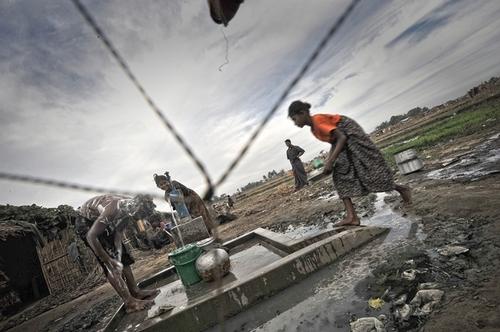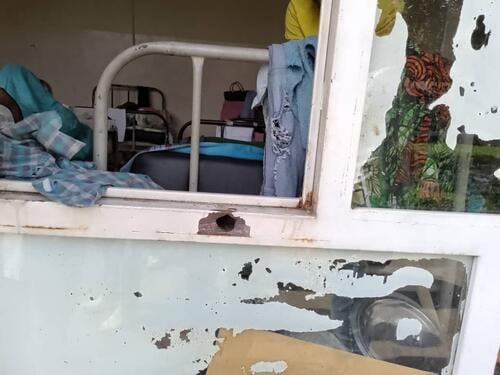Country’s first international symposium to tackle DR-TB crisis begins 22 August
An urgent health threat in Myanmar is drawing together leading experts to explore new ways to tackle the drug-resistant TB (DR-TB) crisis. Forms of TB that cannot be treated with standard drugs are presenting at an alarming rate in the country, with an estimated 8,900 people newly infected every year. Yet only a fraction of people with the disease, 800 by the end of 2012, receive treatment. Untreated, the airborne and infectious disease is fatal. Rapid scale-up of DR-TB care is urgently needed country-wide to save lives and stem the unchecked crisis.
The situation has led medical humanitarian organization Médecins Sans Frontières (MSF), together with the Ministry of Health of the Republic of the Union of Myanmar and the World Health Organization, to co-host a symposium on August 22-23 in Yangon to explore new ways to accelerate DR-TB care country-wide: ‘Turning the tide on TB: Tackling DR-TB and TB/HIV co-infection in Myanmar’.
New approaches to care and new treatment regimens are critical to a scale-up of care, as current methods to try to cure DR-TB take two years, are highly toxic, and expensive. Patients must swallow up to 20 pills a day, and endure eight months of daily injections, yet only around half have a chance of being cured, according to global statistics.
“The side effects from the treatment were strong and it was really difficult to manage. I felt dizziness, pain in my buttocks from all the injections, and problems with my hearing. I felt nauseous when I smelt cooking, found myself easily getting angry, constantly weak and tired, always having diarrhea, and experiencing hallucinations,” explains Ko Min Naing Oo, a cured multi-drug resistant TB (MDR-TB) patient from Myanmar.
Ko Min Naing Oo is committed to raising awareness about the disease and providing peer support for new patients. He launches his inaugural post as Myanmar’s first blogger on the global TB&ME patient platform on 22 August.
“High-burden TB countries must show leadership in tackling this crisis and seize new ways to increase DR-TB care today, as well as push for access to new drugs for tomorrow,” says International President of MSF Dr Unni Karunakara. “Myanmar is demonstrating this leadership through its expanding DR-TB programmed, yet there remains a long way to go. Strengthened partnerships and innovation is needed at all levels, national and international, to ensure effective treatment reaches all those who desperately need it.”
The symposium will see experts from Myanmar and other high-burden TB countries, along with international leaders in the field, come together to share their knowledge and experience in tackling DR-TB. Opportunities to improve treatment and increase cure rates through patient centred approaches to care, new diagnostics and new drugs will be discussed, as well as the specific needs of marginalized groups such as prisoners and migrant workers. The symposium will conclude with recommendations for ways forward, in support of the Government’s ambitious plans to make DR-TB care widely available.
“No country can afford to ignore the human and financial cost of the global DR-TB epidemic. It’s one of the most pressing medical crises today,” concludes Dr Karunakara. “All DR-TB patients in Myanmar, and throughout the world, do not have years to wait for a chance of cure - the time to act is now!”
MSF has been providing health care in Myanmar since 1992 to millions of people from many ethnic origins. Across Myanmar, MSF provides over 30,000 people living with HIV/AIDS with life-saving anti-retroviral treatment. It was among the first responders to cyclones Nargis and Giri, providing medical assistance, survival items and clean water sources for tens of thousands of people.






